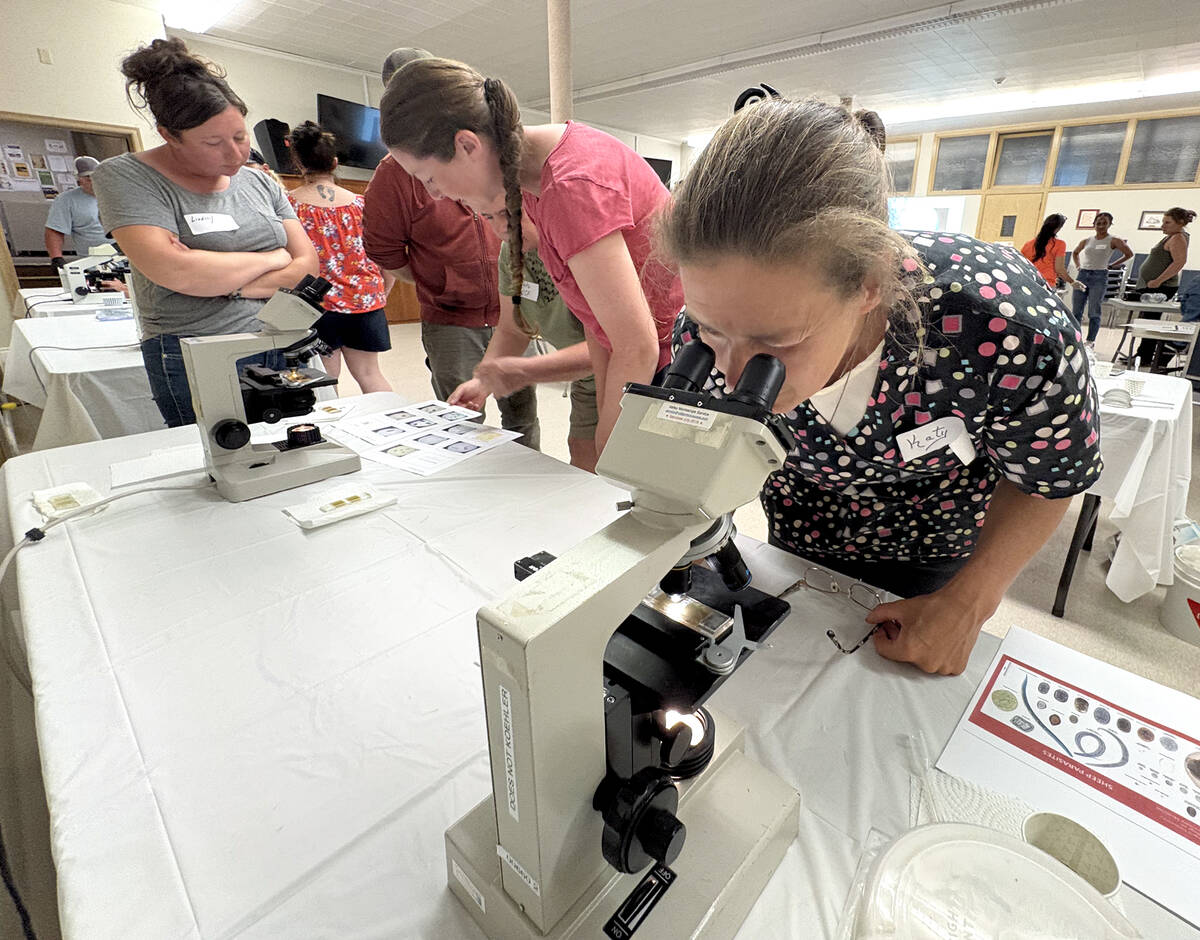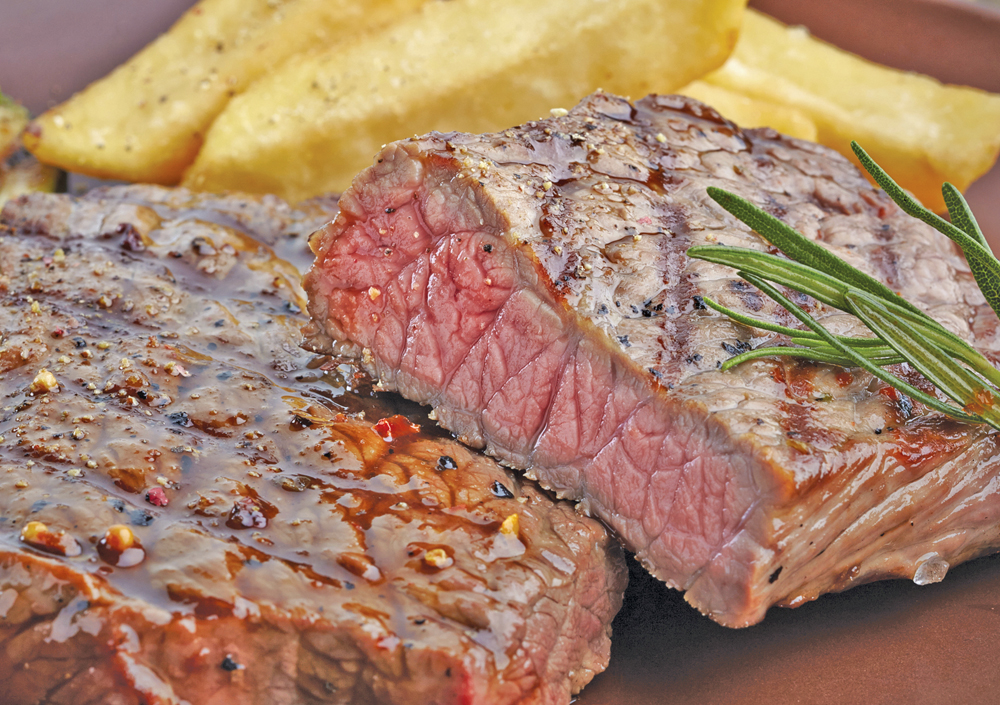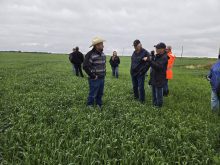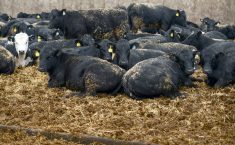A move by the Earls restaurant chain to source “Certified Humane” beef from a Kansas supplier has kicked off a furor across the country.
The move amounts to nothing but a marketing strategy and ignores that industry-led standards in Canada are equivalent or better, according to Brian Lemon, Manitoba Beef Producers’ recently appointed general manager.
“It’s unfortunate that this has happened,” Lemon said. “It’s unfortunate Earls wasn’t willing to talk to us and work with us to find a solution.
“The really troubling part of this is that it’s left a suggestion that somehow the beef we’re producing is lesser, or less humane, and that just isn’t the case.”
Read Also

Smart deworming for sheep starts with individual fecal egg counts
Fecal egg count tests are one step to managing dewormer resistance and managing sheep parasites on Canadian sheep farms to maintain flock health.
The beef from the Kansas supplier is produced under the Certified Humane banner of Humane Farm Animal Care, a Virginia-based group endorsed by the American Society for the Prevention of Cruelty to Animals and the Humane Society of the United States.
The certification indicated the animal has been raised without antibiotics, steroids or added hormones and was treated with “dignity, care and respect” from birth to death, including processing in humane abattoirs designed by renowned animal behaviourist Temple Grandin.
In Canada, there’s the Verified Beef Program, a national industry-led on-farm food safety program that proponents say recreates most of the key components.
Cate Simpson, a spokesperson for Earls, said lobbyists for the beef industry are missing the point of the move, which was to improve animal care standards.
“It seems unfortunate that they are distorting what is really good news for animal welfare,” she wrote in an email. “It’s their job to push that part of the story, but it’s everyone’s job to look after the welfare of animals and the food we eat.”
She also challenged the narrative that Earls has failed to give the Canadian industry a chance.
“We did intensive research and testing for over two years trying to use a Certified Humane beef from Alberta,” she said. “We did use it in our Edmonton and Calgary locations as well as our flagship locations across Canada for well over two years. However, there was (and is) simply not enough Certified Humane, antibiotic-, steroid-free beef in Alberta to meet the volume we use and those we tried were unable to consistently meet our supply needs, not even a portion of it.”
Mo Jessa, Earls president, said the company pioneered the conscious-sourcing concept in Calgary three years ago, examining conditions on farms and in fisheries, where the garbage and food waste went, and where the water required was sourced.
“We took a step back and fully realized the positive impact we could make within our industry by not only having one restaurant follow these principles, but by having our entire company follow these principles,” Jessa said.
The company also noted for the conscious-sourcing model to work, beef is a non-negotiable item. It must be included because it’s the company’s largest volume menu item.
Simpson added the company felt that customer’s concerns over animal welfare outweighed the country-of-origin considerations, but would revisit the issue if a Canadian supplier could provide roughly two million pounds of Certified Humane beef annually.
In a release announcing the move, the chain, headquartered in Vancouver, said it’s just the first step in a new “conscious-sourcing” model for their 59 Canadian and seven U.S. outlets. While the company was enthusiastic about the move, which began April 27, others were not. A social media storm erupted, led by Alberta politicians.
“Let’s hope every bar and restaurant NOT called Earls has an increase in business starting tomorrow,” Ric McIver, an Alberta MLA and interim leader of the Alberta Progressive Conservatives posted to Twitter. “I won’t be setting foot in that place!”
Manitoba Beef Producers’ Brian Lemon said the real issue is competing standards with little accountability or transparency, suggesting it was reminiscent of the early days of the sustainability movement when “green” products first became a major market trend.
“Every label said products were green; everything had that mobius loop (recycling symbol) on it, but consumers had no way of determining if it really meant anything, if something was actually environmentally friendly,” Lemon said. “In a lot of ways I think we’re looking at the same sort of thing here.”
He suggested that most Canadian beef producers are already meeting the bulk of the required standard, and challenged some of the assertions being made by the Certified Humane program. For example, he said Canadian beef producers now use antibiotics sparingly to treat sick animals, rather than as a feed amendment.
“Arguably, refusing to treat a sick animal with antibiotics is inhumane,” he said.
The Certified Humane code does allow antibiotics to be used therapeutically to treat a sick animal.
Lemon also added that hormone treatments that leave barely measurable traces in the finished product allow the industry to produce more meat with less environmental impact.
Lemon conceded that industry-driven programs sometimes lack the flash of third-party programs that are typically agenda driven, and added getting the many stakeholders organized takes time and effort.
“But it is worth the effort and in the end, the bottom line is that our meat is raised under standards that are as good or better,” he said.




















